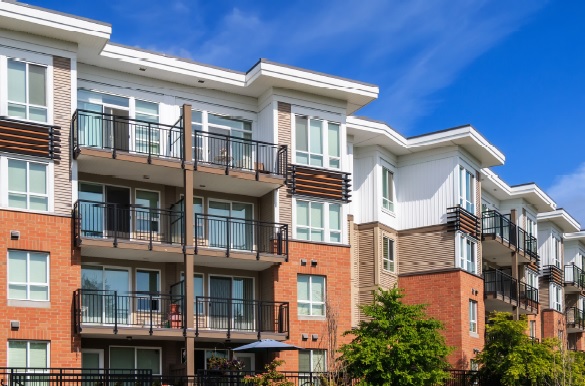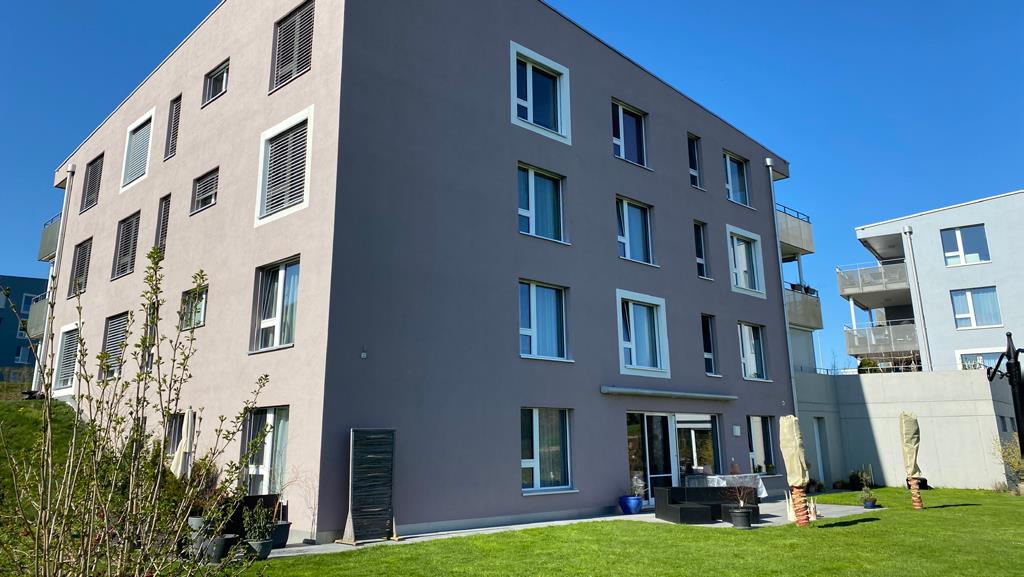Income-producing real estate: prices soften
With rising interest rates, investments in the real estate asset class are no longer without alternative. Prices are falling, as the results of IAZI's evaluations of current transactions show.

In view of the turnaround in interest rates, the times of the investment emergency are definitely over - investments in real estate are no longer without alternative. The previously positive difference between the net return on investment properties and 10-year federal bonds has been drastically reduced by the turnaround in interest rates. Until before the turnaround in interest rates, 10-year federal bonds hardly made any money. Direct real estate investments, on the other hand, earned proud net returns of over 3% during that time. Today, 10-year federal bonds can earn over 1% p.a., while net returns on real estate have barely risen so far. Real estate investors would have to thoroughly rethink their investment strategy, notes the Zurich-based analyst firm IAZI.
Unfavorable market scenario
The fact that investment properties are becoming less attractive is becoming apparent, among other things, in the price trend. IAZI can already calculate a price correction based on the evaluation of current transactions: According to the current data evaluated to date, a correction of 3.4 percent is emerging for multifamily properties based on transaction prices in the 4th quarter of 2022 compared to the peak in the second quarter of the year. For the first quarter of 2023, the analysis house expects a further correction of 3.1%.
In the medium term, however, rising interest rates would lead to an increase in the reference interest rate, which, in combination with current inflation, would allow rents to be adjusted, according to IAZI. Strong immigration, the decline in construction activity and low vacancy rates would also have a supporting effect. These effects will counteract the price correction currently being observed.
"However, if prices for investment properties were to slide too much, it is not impossible that this could develop into an unfavorable scenario for the market," says Donato Scognamiglio, CEO of IAZI. This negative scenario would be provoked by a more technical risk element: The Ordinance on Occupational Retirement, Survivors' and Disability Pension Plans (BVV2), which is relevant for Swiss pension funds, which are known to invest considerable amounts in real estate. BVV2 prescribes a fixed quota for real estate investments, which may not exceed 30%. Because equities and bonds have fallen sharply in value since January 1, 2022 (Swiss equities: -18%; bonds: -12.5%), the real estate quota in some portfolios will increase above the limit. According to the Credit Suisse Swiss Pension Fund Index Q3 2022, around 25% of the pension funds surveyed exceed the required ratio.
The green idyll is still in demand
The picture is somewhat brighter for private residential property. Here, the Corona pandemic triggered a veritable boom phase, especially for single-family homes. According to an analysis by IAZI, rental homes in mountainous regions were particularly in demand. People were prepared to pay around 20% higher rents for rare properties during the pandemic period.
However, according to IAZI, the evaluated transactions for owner-occupied homes indicate that a slight price correction is to be expected from the 4th quarter of this year, particularly for condominiums, while prices for single-family homes will remain at the same level, i.e. here the price trend will be sideways.
Overall, the interest rate turnaround has made the situation more difficult for those willing to buy. In particular, 10-year fixed-rate mortgages now cost much more than they did at the beginning of the year, at over 3%. True, there is a temptation to switch to Saron mortgages, which are still relatively cheap. But it is currently impossible to predict how high the Saron will go if the Swiss National Bank decides to raise interest rates further in order to get inflation under control.
Supply rents rise
In the segment of rental apartments this year the great demand has led to a decrease in vacancies. Thus, the vacancy rate in 2022 has fallen to 1.3%. Regionally, the differences are large: While in the Jura and Ticino up to 3% of the apartments are still vacant, in the city of Zurich sometimes up to 500 applicants have to try their luck when viewing an apartment. Yet the city of Zurich offers fewer than 200 vacant apartments. However, this striking housing shortage is put into perspective by the fact that the tenant population fluctuates very strongly. At 14%, the fluctuation rate is highest for private rental apartments, while it is only half that for cooperative apartments.
The turnaround in interest rates will also confront apartment seekers with higher housing costs. On the one hand, this is explained by the strong demand for rental housing from the domestic population and also from immigrants. At the same time, new construction is limited by a lack of land reserves and by the fact that institutional investors will not be increasing their real estate quota much in the near future. The majority of tenants in existing leases, whose owners have not passed on all reductions in the reference interest rate in the past, are still protected from the rise in interest rates.
Renting becomes cheaper than buying
The sharp rise in mortgage rates has caused the cost for homeowners to rise sharply if they want to renew their mortgage again with a fixed-rate mortgage. The years when it was much cheaper to own a home due to low interest rates seem to be a thing of the past. However, many homeowners would not feel this increase in costs until their mortgage expires or is renewed, according to IAZI.
However, anyone who has used the time in the past to amortize their mortgage and has built up reserves can also be relatively relaxed about a further rise in interest rates. Ultimately, after all, when the mortgage was granted, the purchaser was required to prove that he could also bear an interest rate of 5%. "Fortunately, we are still relatively far away from this level," says Scognamiglio. The turnaround in interest rates has meant that in most Swiss communities it is currently cheaper to rent an apartment than to buy a condominium, but the tenant is foregoing possible increases in value. (bw)









